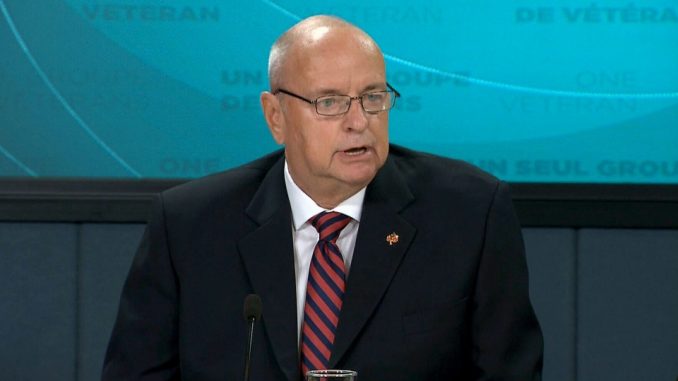
 Veteran’s ombudsman of Canada, Guy Parent, mentioned in a recent press release that he believes that the latest legislation has failed to cater some of the most severely wounded and disabled soldiers, while recommending that the government must address its “urgent shortcomings” immediately. The press release issued on Tuesday presented an elaborative report comparing the New Veterans Charter enacted in 2006, with the old system of compensating veterans under the Pension Act.
Veteran’s ombudsman of Canada, Guy Parent, mentioned in a recent press release that he believes that the latest legislation has failed to cater some of the most severely wounded and disabled soldiers, while recommending that the government must address its “urgent shortcomings” immediately. The press release issued on Tuesday presented an elaborative report comparing the New Veterans Charter enacted in 2006, with the old system of compensating veterans under the Pension Act.
The report mainly underlined issues with the level of financial support given to veterans, particularly those who were permanently disabled in combat. It was highlighted in the report that hundreds of the most severely disabled veterans will suffer a crucial financial hit after they turn 65, due to the government’s decision of not to provide them with military pensions. The report claims that more than half of veterans assessed as “totally and permanently incapacitated” can’t find work are not awarded impairment benefits. Moreover, the report mentioned that “it is simply not acceptable to let veterans who have sacrificed the most for their country…live their lives with unmet financial needs.”
Parent pointed out that the legislation basically needs to be overhauled in three major areas: financial, vocational rehabilitation and family support. In a news conference in Ottawa, Parent stated that “we either deal with these issues now or we are going to have to deal with the cost later.” Parent alleged that he’s “encouraged” that Minister of Veterans Affairs, Julian Fantino, agreed to his recommendation for a comprehensive review of the New Veterans Charter.

Sorry Guy, your recommendations are well thought out, except you failed to address the single largest problem with VAC. VAC PERSONNEL, WHICH INCLUDE CASE MANAGERS, PHYSICIANS, ADJUDICATORS, NURSES, ETC., REGULARLY IGNORE THE EXISTING PROCEDURES AND REGULATIONS TO DENY AND REDUCE EXISTING BENEFITS. Denying life-sustaining medication through the use of SA units, falsifying log records by case managers to hcomment_IDe serious issues, the use of “work around” benefit codes not available to the public, generating false and misleading medical reports and breaching the Privacy Act to deny disability benefits, delaying benefit decisions without reasonable cause, paying for civilian medical reports and then refusing to use them for benefit decisions indicates a complete lack of competence and integrity by VAC staff. Altering the Charter will NOT help veterans until VAC staff are replaced with professional and trained personnel or absorbed by the DND. According to VACs top level staff: “We know that we are lousy, frankly!” Jennifer Inglis, Area Director for Veterans Affairs Canada. Audio files supporting VACs own personnel opinions of the organization are now available at http://www.Gieschen.com. Other admissions include “there was no investment made in hiring people … who had the skills we really need”, and “Sometimes we are very difficult to deal with honestly, I’m not going to lie about that!”. VAC should also eliminated half of their 35 communications staff and put the money towards training their own staff to communicate with veterans and between their own departments and units. Here’s an actuarial analysis of VAC communications, they generate twice the amount of press releases than the DND/CF but employe 1,000 vs 100,000 staff.
END OF MESSAGE